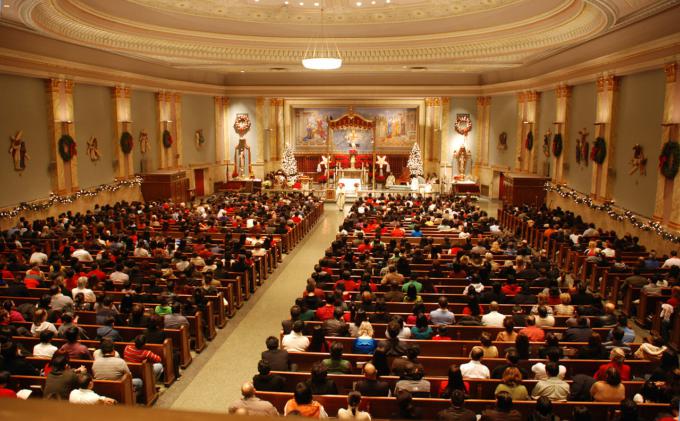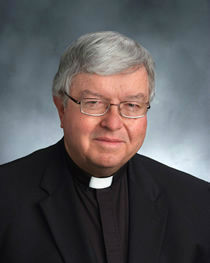Faith

Priest with liberal politics
Father Kenneth Doyle
So the Catholic Church -- rightly and necessarily -- takes positions on a host of public policy issues... Obviously, such advocacy will often intersect with the viewpoint of one or another political party or candidate.

Father Kenneth
Doyle
Doyle
Recently, after the pope's message on the modern family, our pastor said this from the pulpit: "All relationships must be honored." He wanted us to honor same-gender marriage despite the fact that the pope had said that it was not acceptable.
After the first Republican presidential debate, he made the following comment in his sermon: "One of the candidates wants to build a wall to keep illegal Mexicans from coming to America. Isn't that a crazy idea?" Other parishioners have also noticed this and are concerned about it. I have seriously considered changing parishes if this continues. (Southern Illinois)
A. The Catholic Church's guidance to its priests is clear: As public representatives of the church, they should neither endorse nor oppose political parties or particular candidates for office. (Not incidentally, this also matches the law of the land as applied to tax-exempt institutions.)
At the same time, as the U.S. bishops said in their 2015 document "Faithful Citizenship": "The church's obligation to participate in shaping the moral character of society is a requirement of our faith." So the Catholic Church -- rightly and necessarily -- takes positions on a host of public policy issues, among which are: care for the poor, the sick and the elderly; protection of human life at every stage; opposition to the death penalty; attention to "just war" principles; and support for a living wage. Obviously, such advocacy will often intersect with the viewpoint of one or another political party or candidate.
On immigration, for example, the position of the Catholic Church is clear. In a 2003 pastoral letter entitled "Strangers No Longer," the U.S. bishops stressed that "when persons cannot find employment in their country of origin to support themselves and their families, they have a right to find work elsewhere in order to survive" and that "more powerful economic nations ... have a stronger obligation to accommodate immigration flows."
In my mind, though -- if you are quoting accurately -- your pastor went beyond what is discreet (or permitted) by relating his views on immigration to a particular candidate. The focus must be always -- and solely -- on the issue itself.
What he said about Pope Francis and same-sex marriage might simply be a matter of emphasis and of how you heard him. In his April 2016 exhortation "Amoris Laetitia," the pope did say that homosexual unions do not match God's plan for marriage and family, but he also said that "every person, regardless of sexual orientation, ought to be respected in his or her dignity and treated with consideration."
Before you decide to change parishes, perhaps you and some like-minded parishioners might seek to meet with your pastor and discuss your concerns. Failing that, if you think that he is clearly violating the church's guidelines, you always have recourse to the chancery office in your diocese.

No comments:
Post a Comment